Colombia's Colonial Jewels & the Coffee Triangle
with pre-trip to Bolivia: La Paz & Lake Titicaca
January 31 - February 19, 2019
Part One, Page Two - Bolivia: Valley of the Moon and the Road to Copacabana
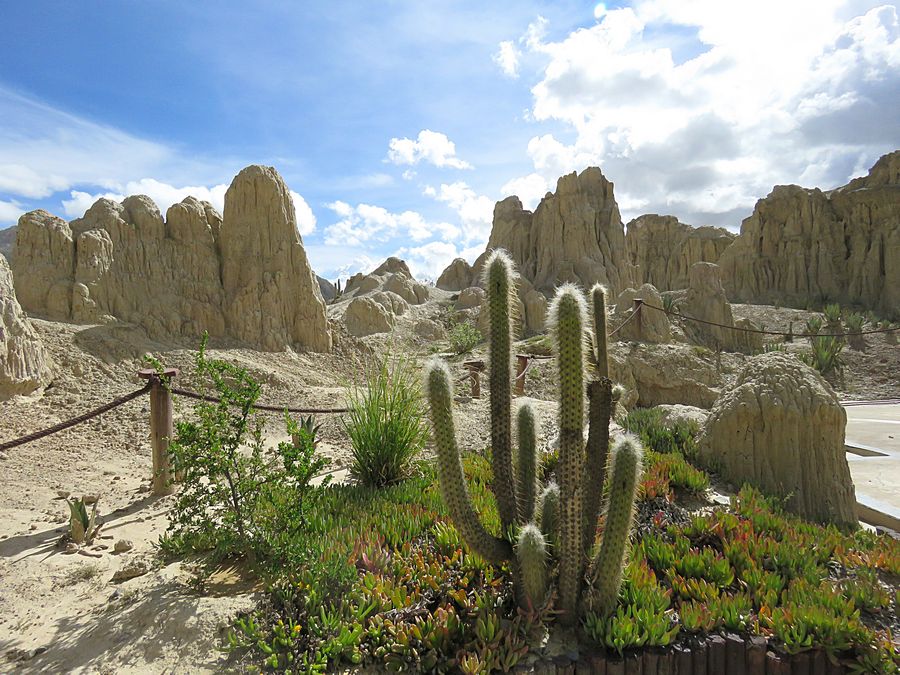
Valley of the Moon, south of La Paz.
It consists of an area where erosion has worn away the majority
of a mountain, composed primarily of clay rather than rock,
leaving tall spires.
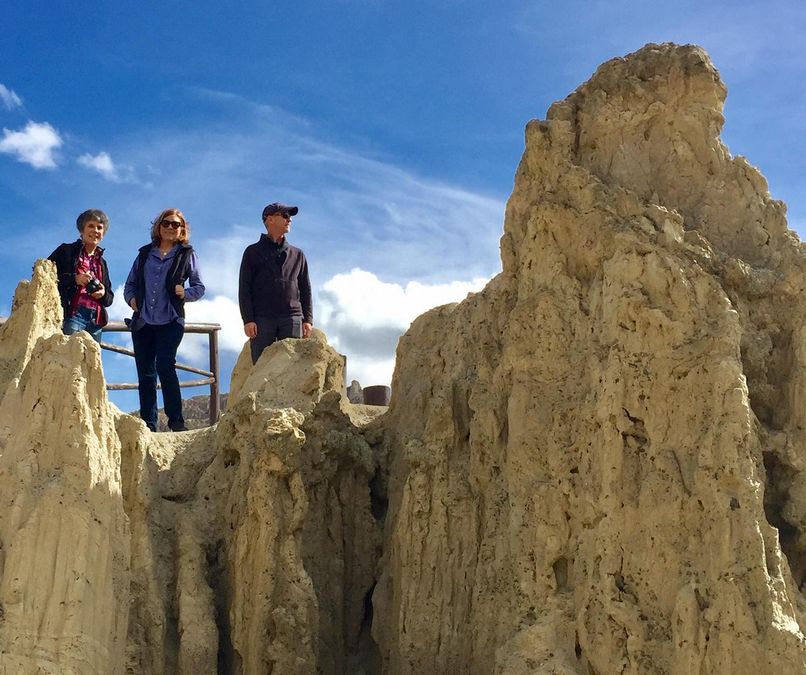
Pat, along with Liz and Dan from Santa Fe, New Mexico, at
Valley of the Moon
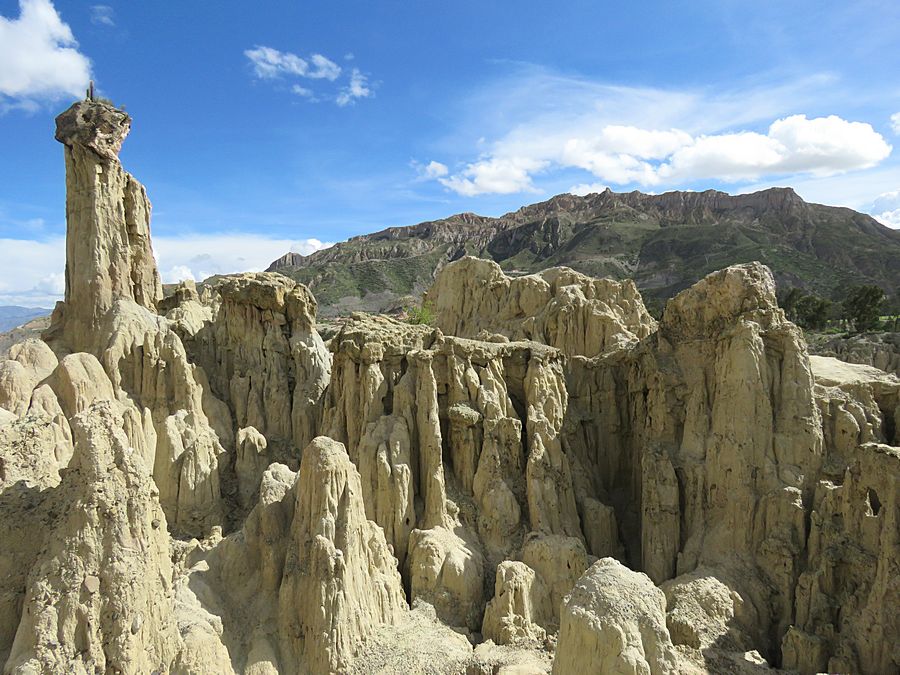
Because the mineral content of the mountains varies greatly
between individual mountains, the sides of the mountains are
different colors. A majority of them are a clear beige or light
brown color, but some are almost red, with sections of dark
violet.
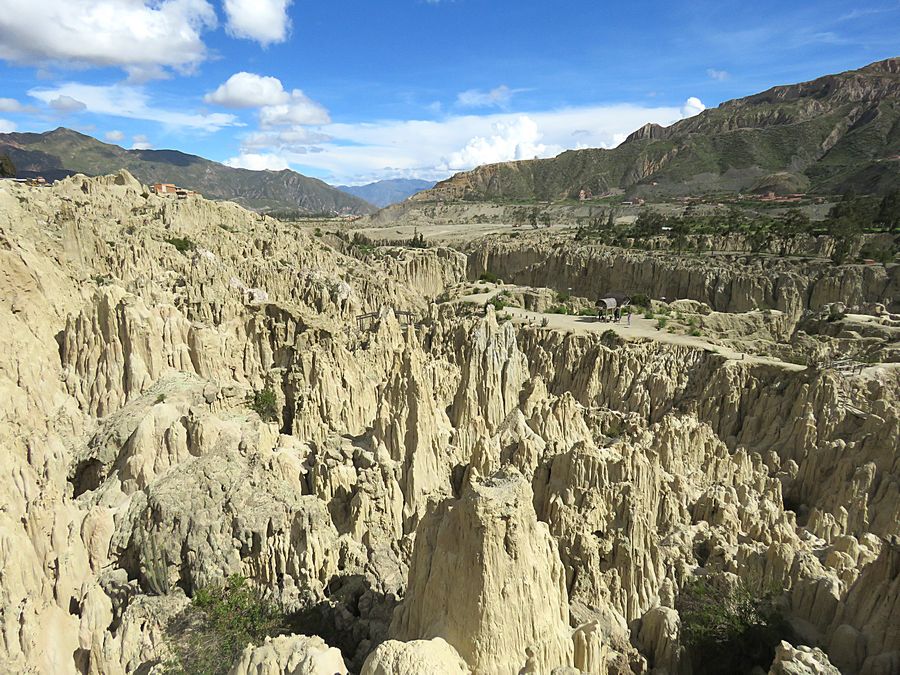
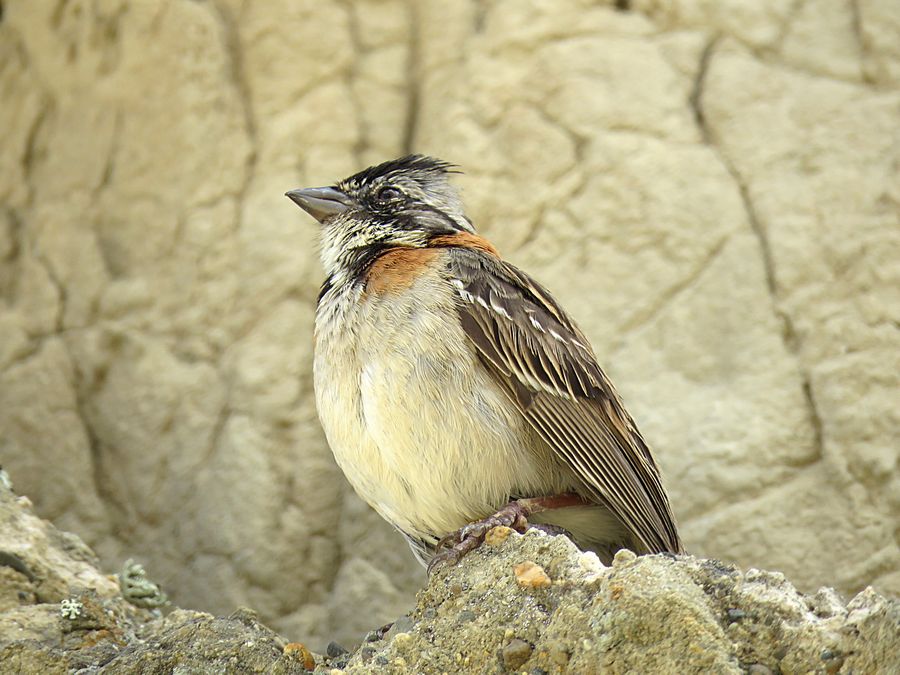
Bird perched on one of the spires
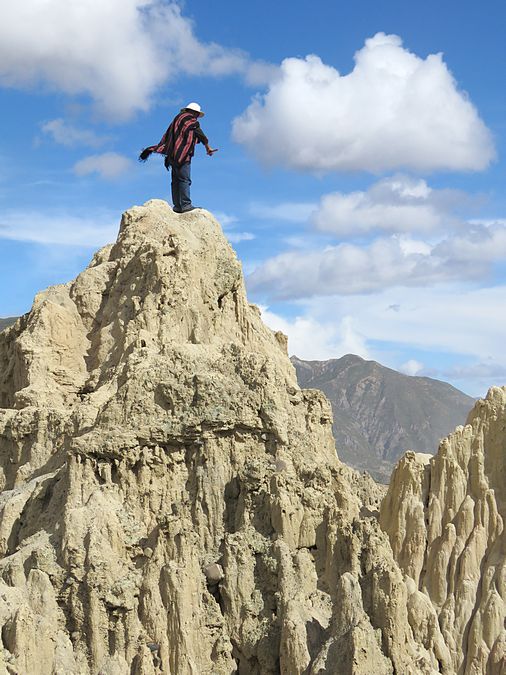
A man playing a flute like instrument at Valley of the Moon
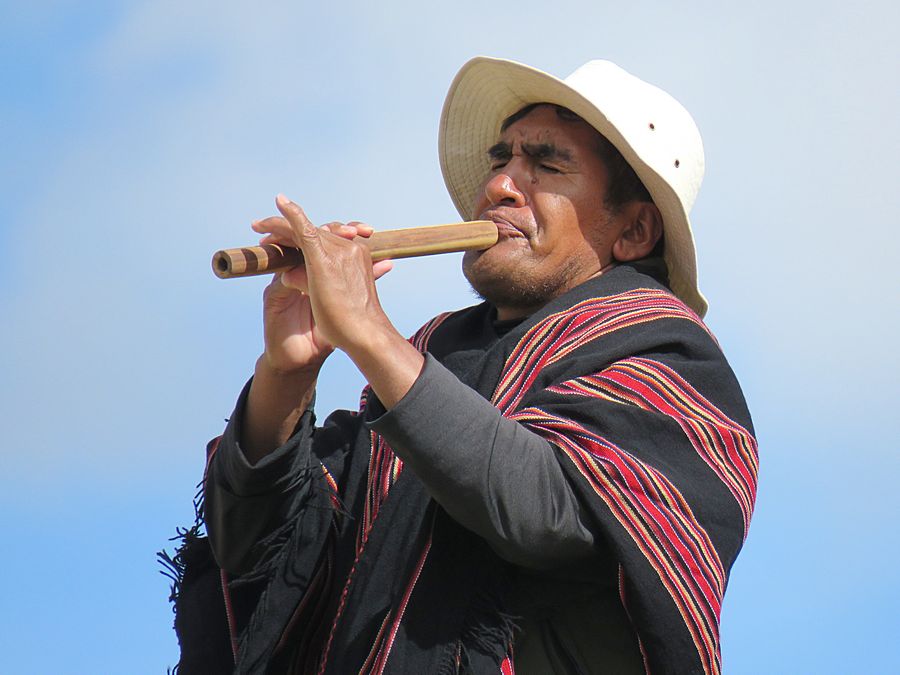
Man playing the flute at Valley of the Moon
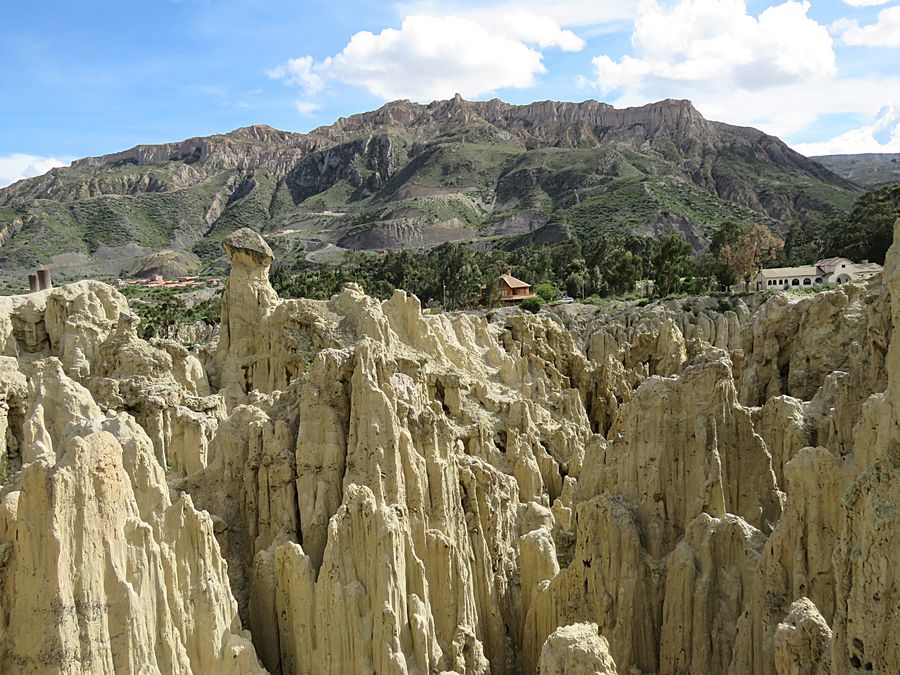
Valley of the Moon with some surrounding mountains
in the background
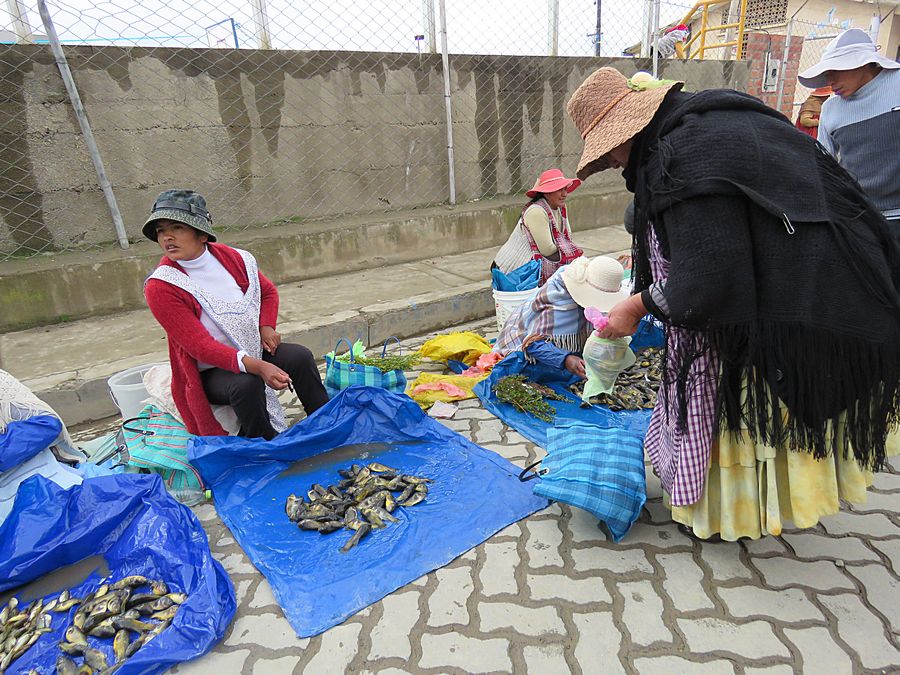
A local market in El Alto, part of the La Paz metro area.
This vendor was selling fish.
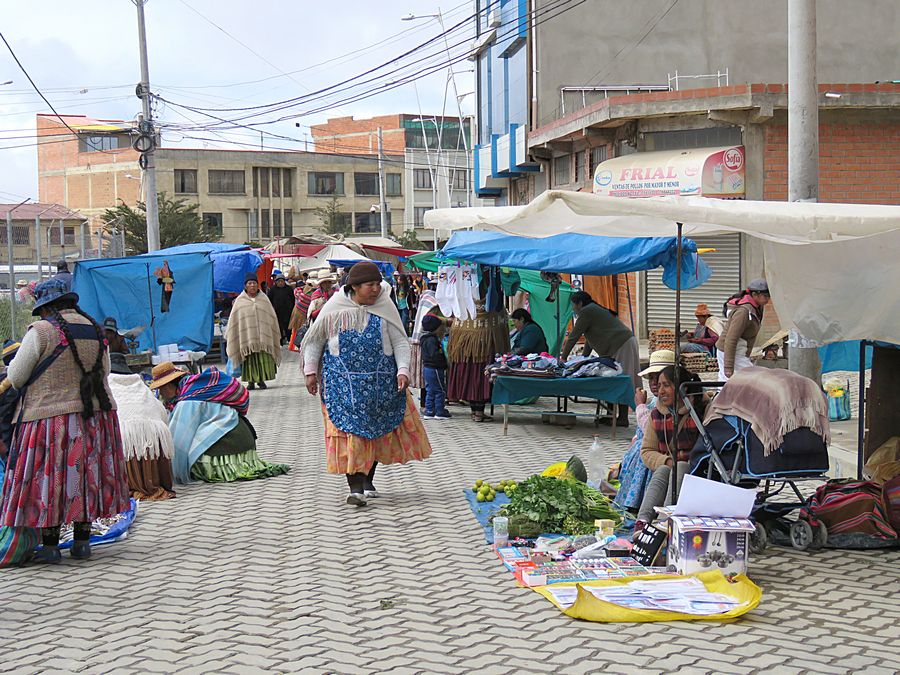
In the same market area

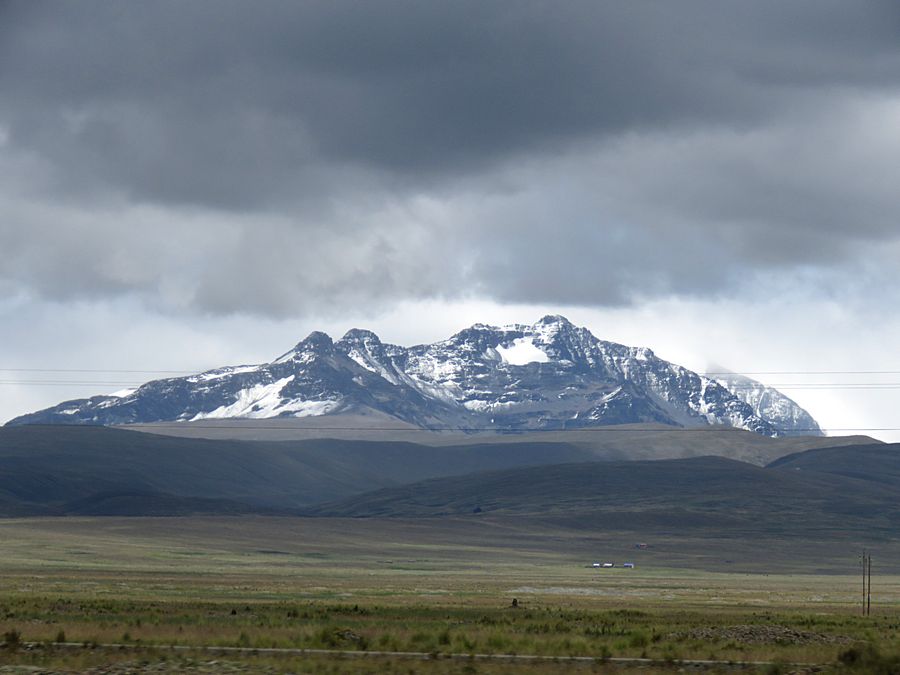
The Andes on our way to Lake Titicaca. It rained some
while we were driving but stopped whenever we needed to leave the van.
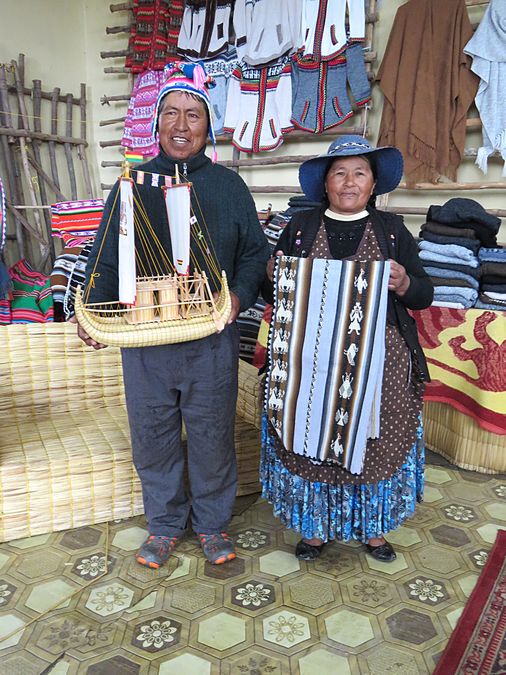
This man and his father helped build a traditional boat, a balsa,
for Thor
Heyerdahl, the Norwegian adventurer, for the Ra II
expedition
of 1970, when Thor sailed from the west coast of
Africa
to Barbados.
The expedition was designed
to demonstrate that ancient people could have
made long sea voyages, creating contacts between separate
ancient cultures (see later photo of the type of boat).
This family was living along the shoreline of Lake
Titicaca.
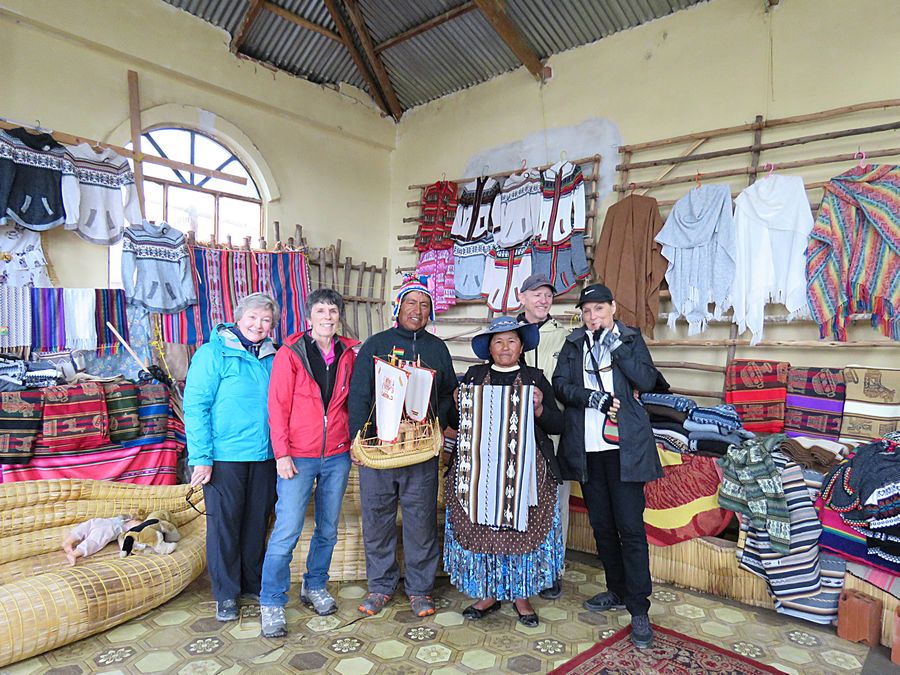
The Boilivian tour group with the man and his wife. He is holding
a model of the traditional boat built for Heyerdahl's journey.
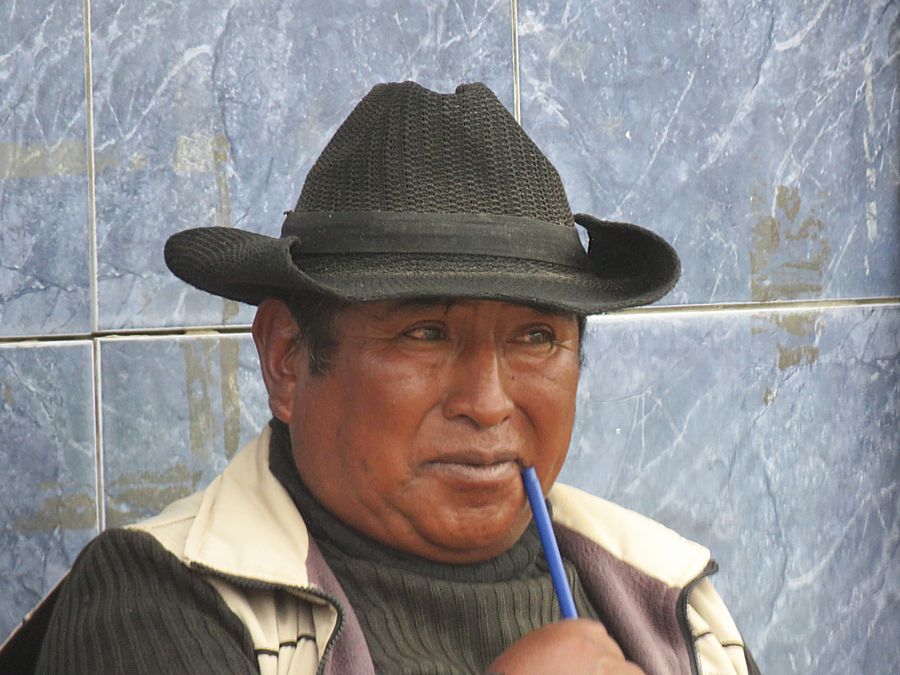
Gentleman sitting near a ferry barge we took on our way to
Lake Titicaca
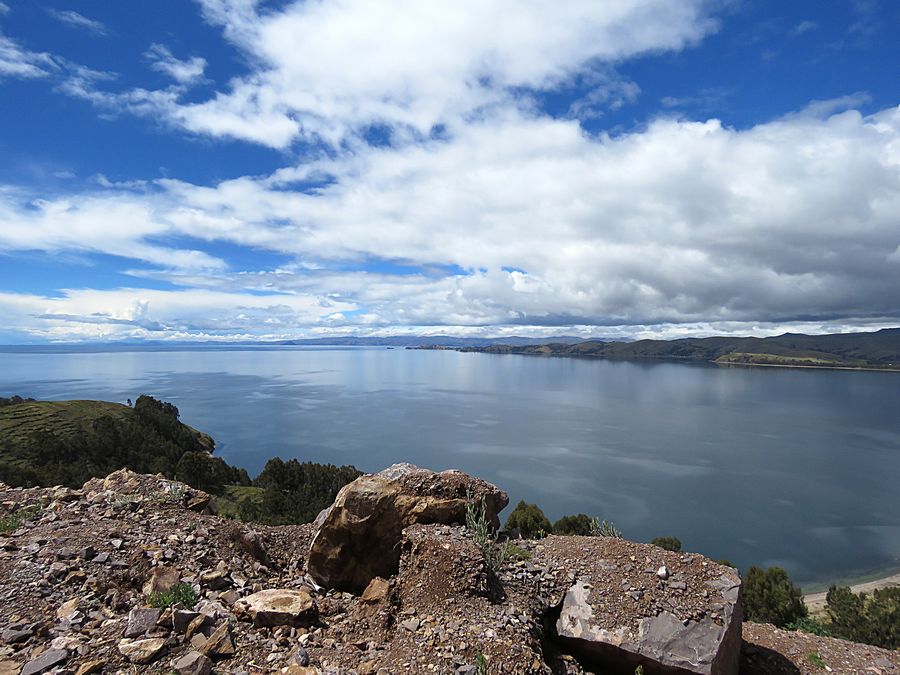
One of our first views of Lake Titicaca on our way to stay
overnight in Copacabana.
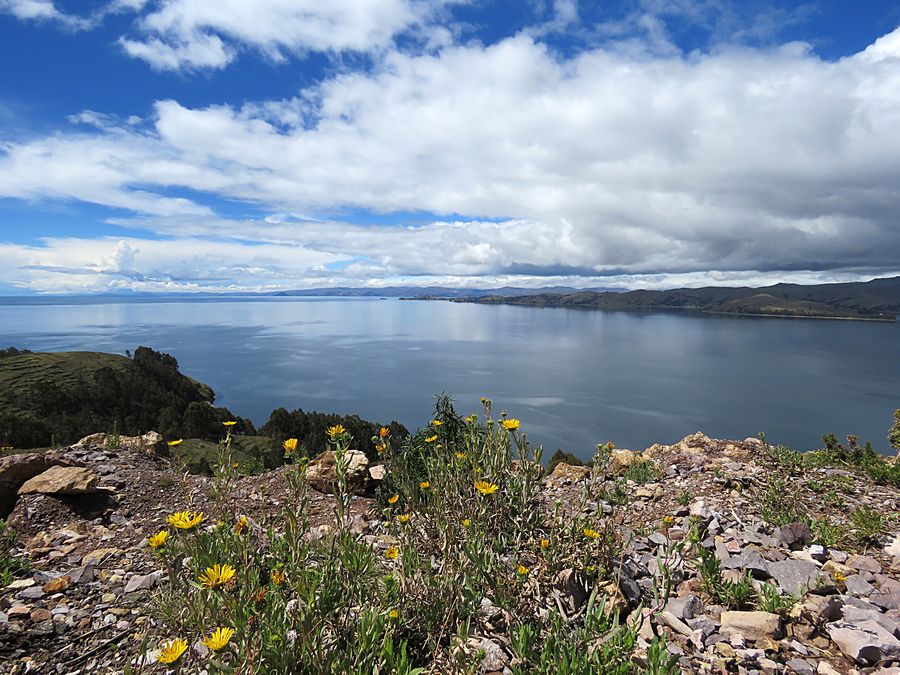
Lake Titicaca is a large, deep lake in the Andes on
the border of Bolivia and
Peru, often called the
"highest navigable lake" in the world. By volume of water
and by surface area, it is the largest lake in South America.
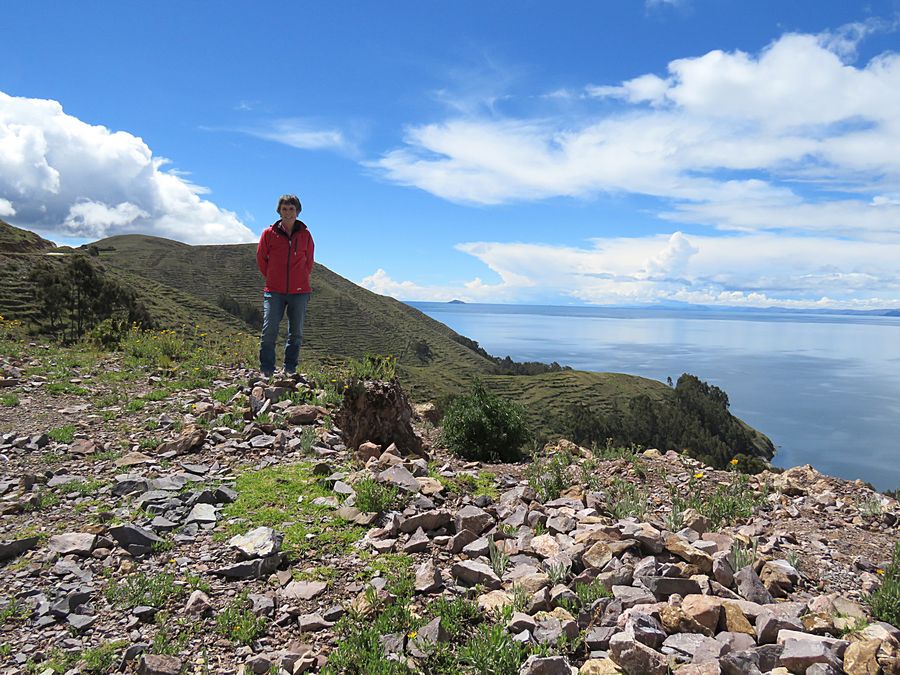
Pat at Lake Titicaca. Note the terraced field in the background to
assist in farming the land.
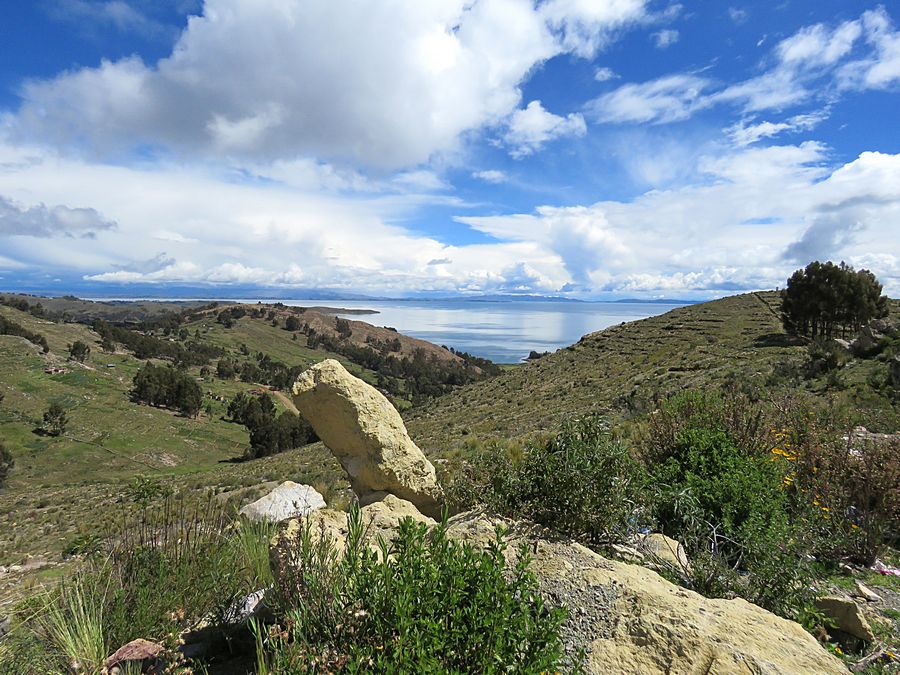
Another view of the Lake on our way to Copacabana.
While driving, we hit an altitude of 14,000 feet. The
altitude did affect some of our tour group, but I
had an advantage living in Colorado.
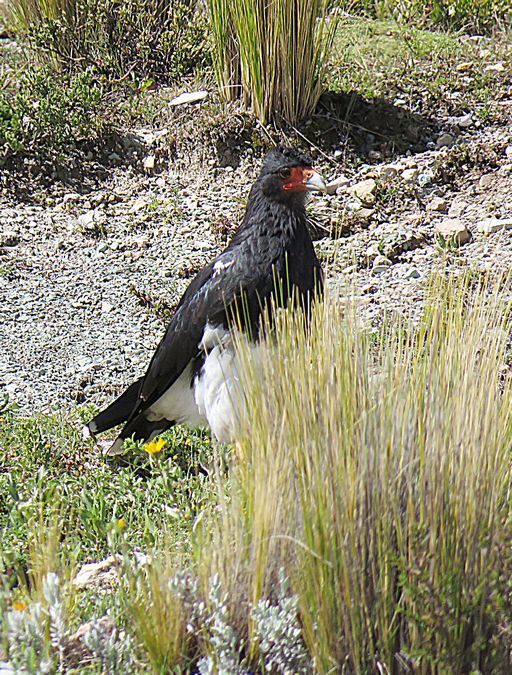
A caracara wandering near the road.
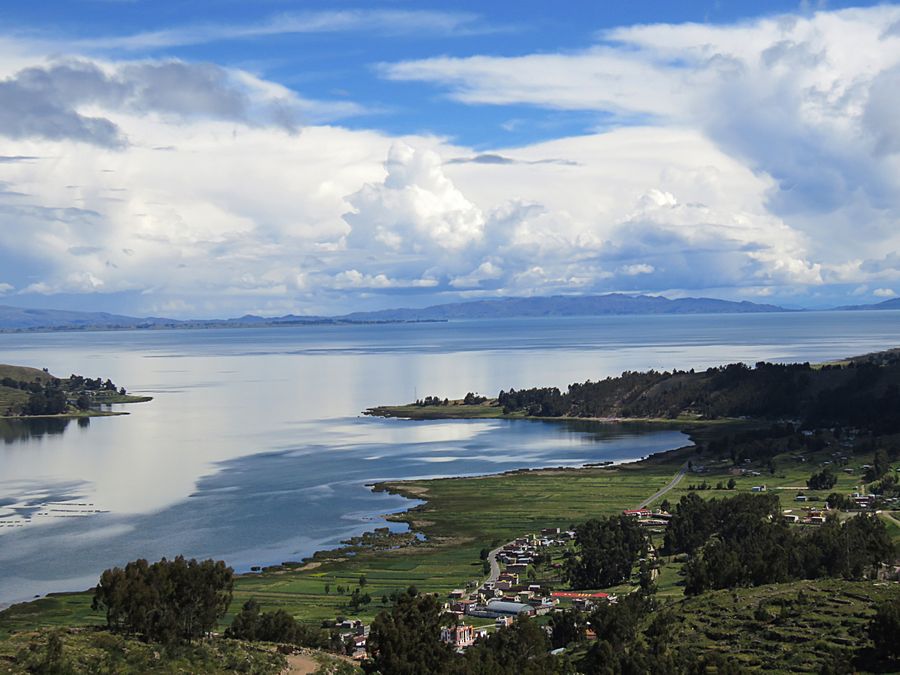
A view of Lake Titicaca from the road side near Copacabana.
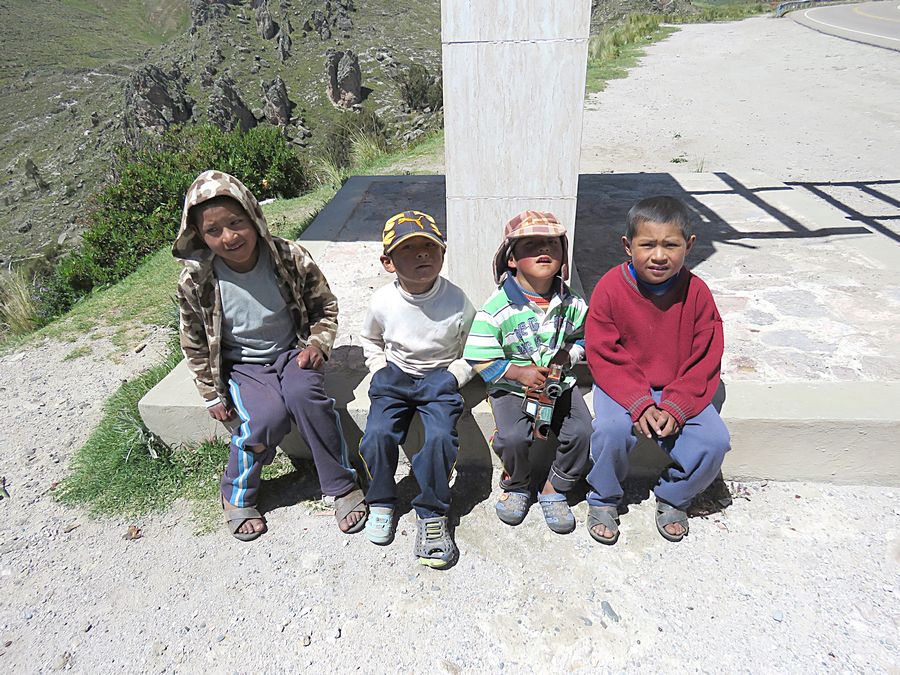
4 boys that were playing along the road where we stopped for
the view shown above. The 4 of us on the pre-trip to Bolivia
decided to buy them new shoes. Note that the boy second
from the left has a different shoe on each foot. Our tour guide
told the boys about what time to be back there the next day
when we would be returning to La Paz. She measured their
feet on some paper, and we bought shoes later in Copacabana.
Please note that the boys did not ask us for anything.
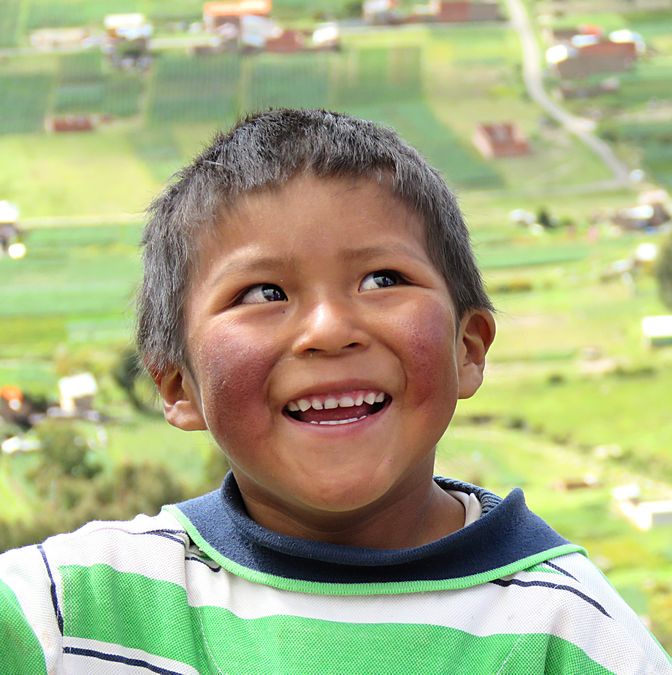
One of the boys, who has an outgoing personality.
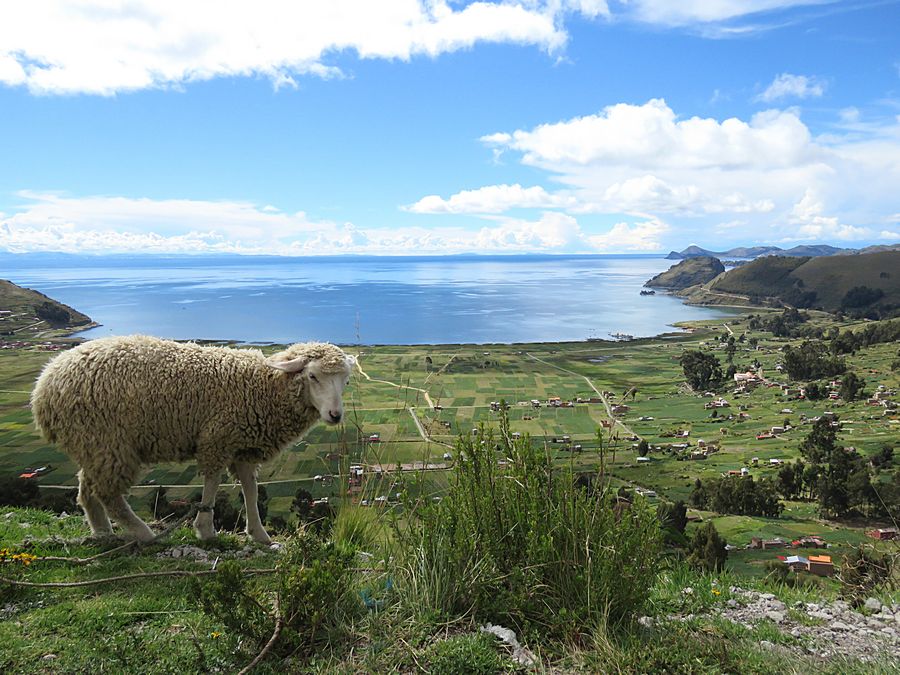
There were also some sheep tied to ropes grazing in this area
along the road.
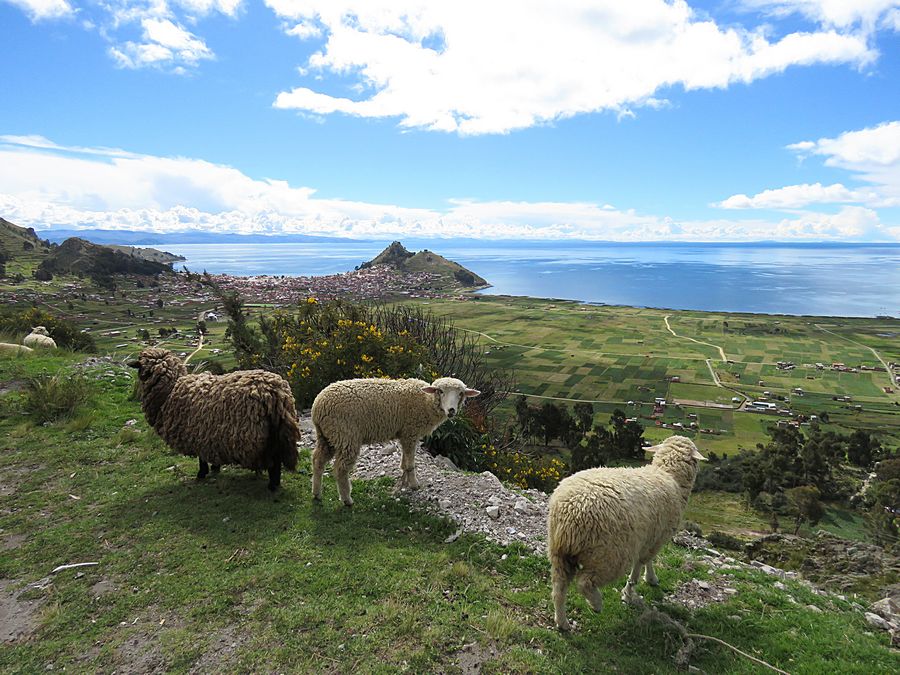
The town of Copacabana in the distance.
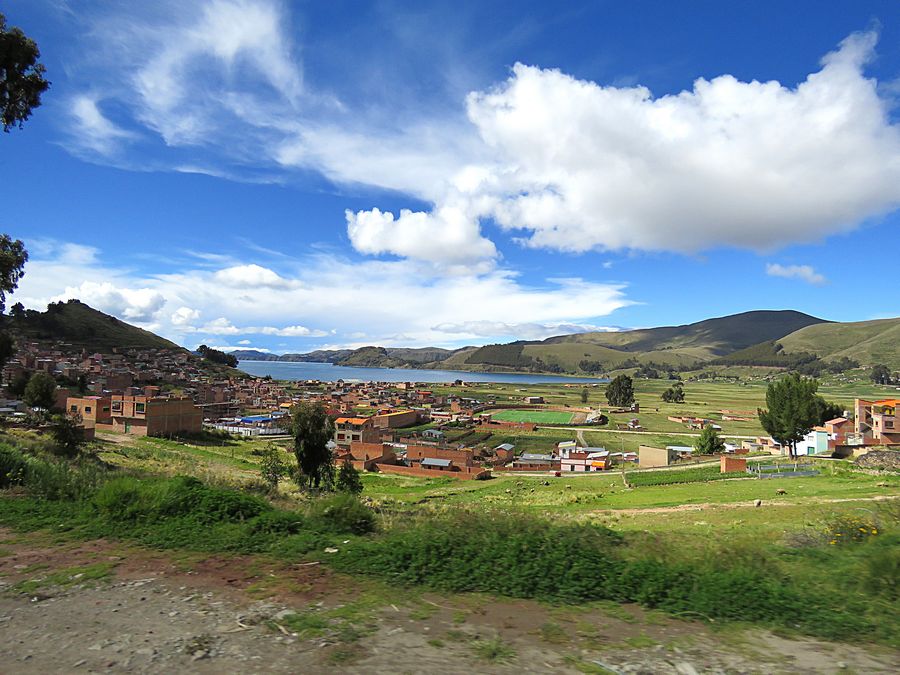
Approaching Copacabana
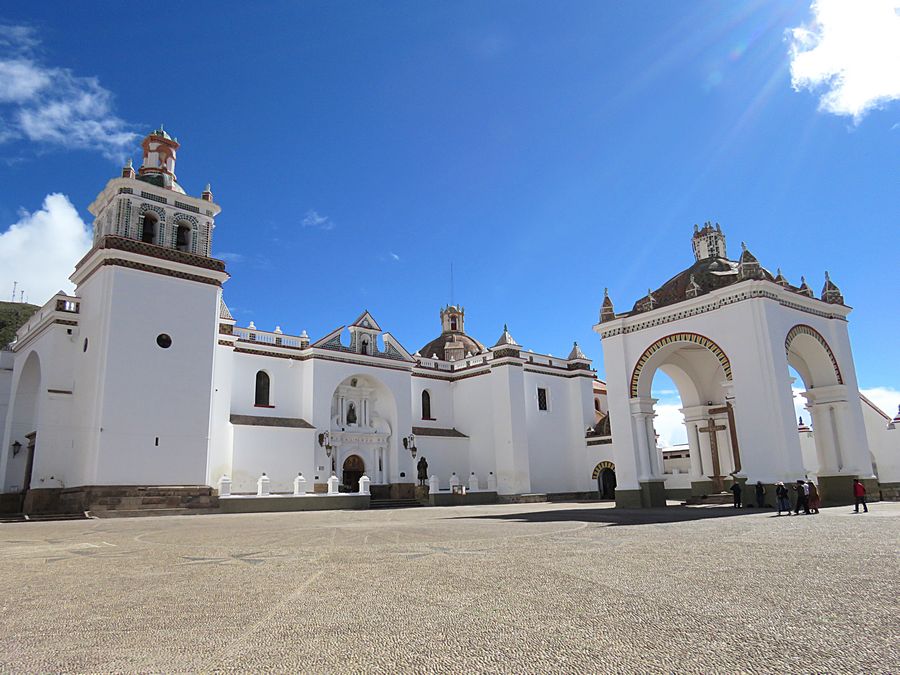
The Basilica of our Lady of Copacabana - a 16th-century
Spanish colonial shrine. It is located in the town of Copacabana,
Bolivia on the shores of Lake Titicaca near the Altiplano
(Andes Plateau) region.
Our Lady of Copacabana is the patron saint of Bolivia
so many in Bolivia pilgrimage here.
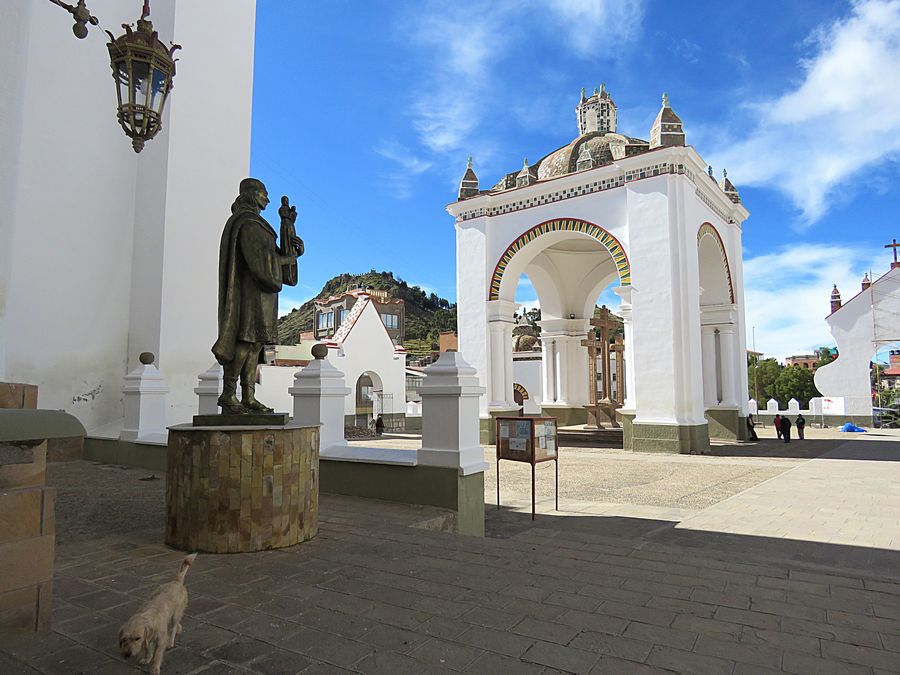
The Basilica is one of the principal sacred places of
importance to the indigenous peoples and Catholics alike in Bolivia.
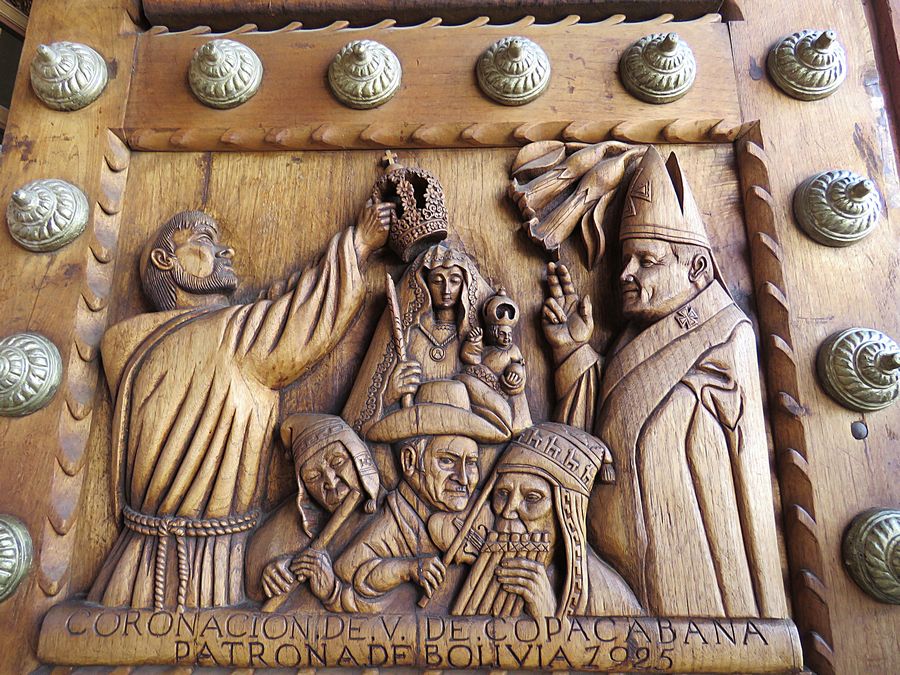
Carving on the entrance door to the Basilica
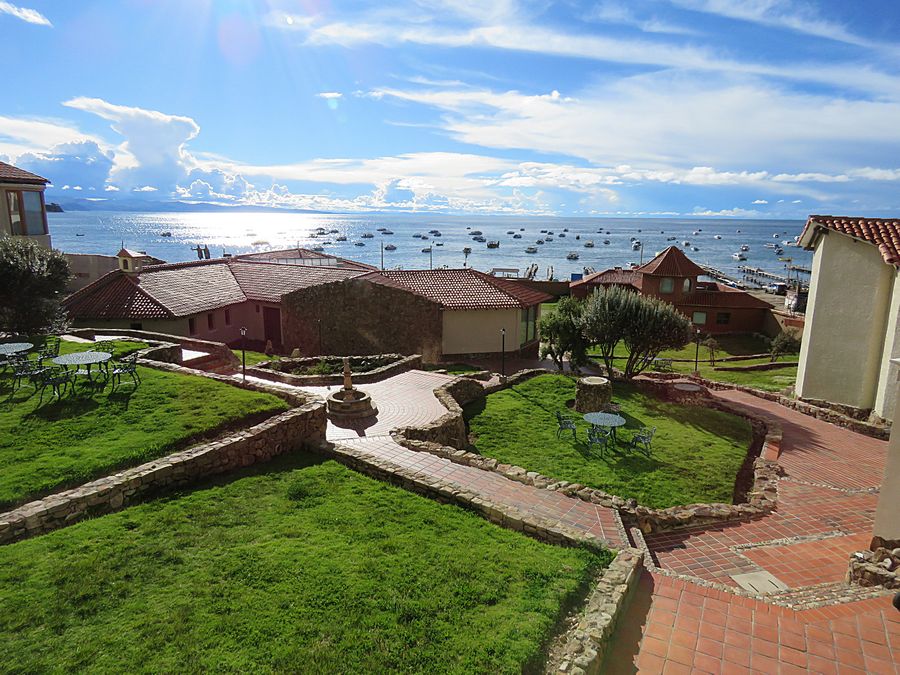
View from my hotel room in Copacabana of Lake Titicaca
nearing
sunset.
Link to Part One, Page Three - Lake Titicaca and Tiwanaku
Pat's Home Page